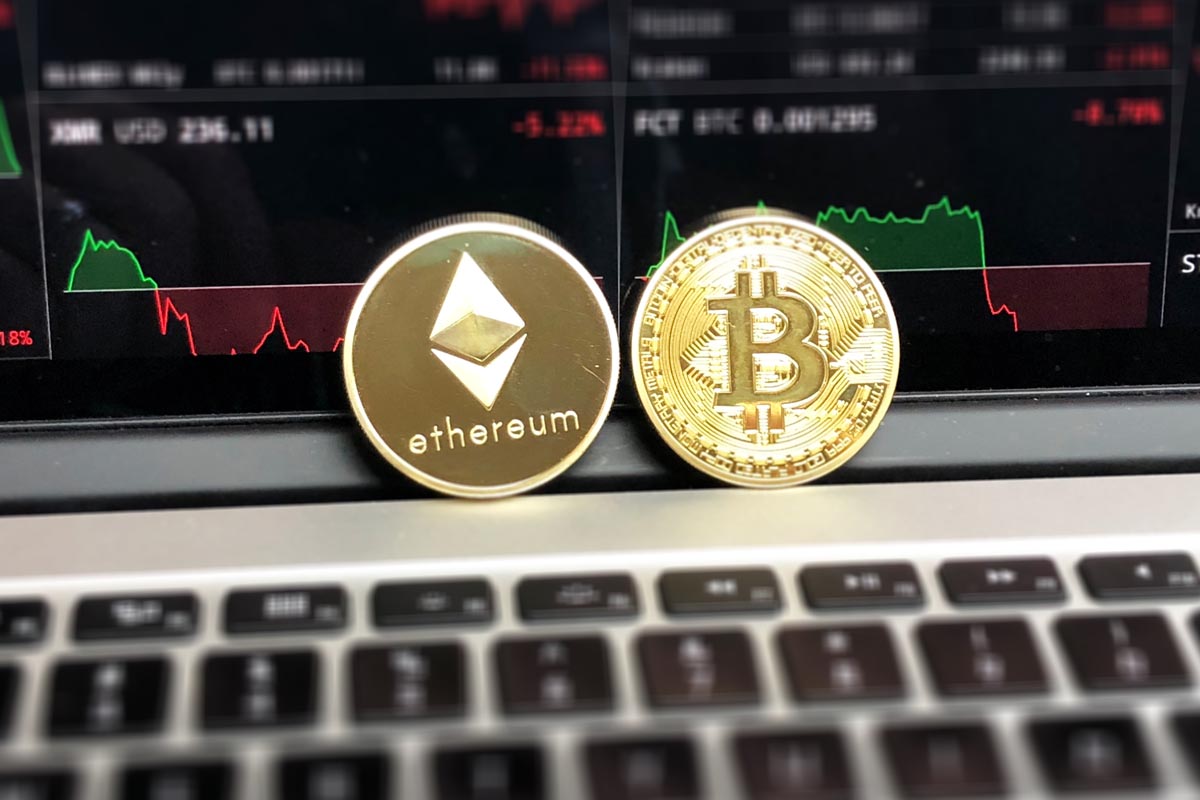Top Five Crypto Red Flags on Social Media
Some scams are easy to see, but others might look like a worthwhile investment opportunity. Here are some crypto red flags to look out for.

Ethereum is often touted as Bitcoin s foremost ‘rival’, but in reality the two digital currency platforms serve two different purposes. While Bitcoin is a decentralized, peer-to-peer payments network, Ethereum is a platform that uses blockchain technology to replace ‘third party’ internet vendors that store data or keep track of complex financial instruments.
Ethereum, in itself, relies on a currency called Ether. Given the fact that Ether has seen massive price increases in recent months, and the fact it is frequently accepted as tender in new Initial Coin Offering (ICO) projects, Ether is frequently labeled as a financial asset that might one day eclipse Bitcoin’s supremacy. However, while Ether is a digital bearer asset similar to Bitcoin, the cryptocurrency is instead designed to serve as a token necessary to pay for computational resources necessary to process an application or program built on the Ethereum platform.
In the same manner that Bitcoin has been called ‘digital gold’, Ether has been similarly labeled ‘digital oil’.
The vision of the Ethereum platform is to accommodate users around the world with control over their own data through a distributed computing platform wherein new projects could build services atop of the platform itself. In the Ethereum network, thousands of servers and clouds are replaced by ‘nodes’ – computing power offered by committed volunteers – which weave together to serve as a decentralized ‘world computer’.
Requests made on this network are calculated in GAS – a unit of computation used in transactions – and are paid for in Ether.
The amount of GAS necessary to complete a transaction is determined by the cost of computation. Essentially, all smart contracts and decentralized applications running on the Ethereum platform cost GAS.
Essentially, GAS is pegged to the supply and demand of computational power available on the Ethereum network. Ether is used to pay for GAS rather than facilitate computational requests directly due to the fact that a volatile market could easily render ordinary requests on the Ethereum network far too costly for the average developer.
Presently, Ether does not have a fixed supply despite the fact that no more than 18 million Ether are minted each year. Proposals from Ethereum’s developers have indicated that the platform may shift from proof-of-work mechanics (mining) to proof-of-stake mechanics in the near future, meaning that the platform may introduce a hard cap at some juncture.
While Ether is the currency of the Ethereum platform, it has not been expressly designed to be used as a means of exchange or a unit of account for general goods in the same way Bitcoin has. However, vendors may at some point in the future choose to adopt Ether as tender, given that the currency generally fulfills the properties of being good money despite its original intent and its present lack of a hard cap.
Ether’s role as the currency of the Ethereum platform and the possibility of it being used as a means of exchange have been conflated by the emergence of several ICOs running on Ethereum’s mainnet, which appealed for the donation of Ether in exchange for new ERC-20 (Ethereum compliant) tokens.
Given that new ICO projects have requested Ether as payment from interested investors, the price of Ether has soared in recent months – outstripping even Bitcoin’s growth. This reflexive relationship has lead to the saying that ‘ICOs are Ethereum’s killer app.’
Bitcoin enjoys primacy in cryptocurrency markets given its status as the original digital currency outlined by Satoshi Nakamoto, as well as the fact that – unlike Ethereum – Bitcoin is limited to a 21 million-hard cap.
Ethereum as a platform, however, generates several appealing qualities that Bitcoin does not possess.
Ether’s block time is typically between fourteen and fifteen seconds – as opposed to ten minutes on the Bitcoin network – and the mining of Ether generates new tokens at a consistent rate. This means that transactions in Ether complete more rapidly, while new Ether enters the system more quickly.
Ether’s transaction fees differ by the varying complexity of the computations required to facilitate a smart contract – meaning that developers, in principle, pay for what they require. Bitcoin’s transaction fees are instead determined by the relevant size of a transaction.
The development of smart contracts, specifically, can craft complicated and autonomous agreements that can execute when certain premises are met – meaning that Ethereum may represent a compelling platform to create payment agreements.
Given its prevalence as a decentralized platform, Ethereum has also birthed a number of projects designed to leverage the platform’s finer qualities for the purpose of serving as a general currency. Among these are Dai – a ‘stablecoin’ pegged to the US dollar, and Digix -a token pegged to the price of gold.
Some scams are easy to see, but others might look like a worthwhile investment opportunity. Here are some crypto red flags to look out for.
Find out the countries where you'll pay the most tax if you're trading, holding, buying or selling cryptocurrencies.
Advancements in artificial intelligence and communication technologies make it difficult to discern what's real and what's a scam.
After Kate Middleton's alleged data incident and possible internal attack at the London Clinic, there's a clear need for security in cyber...